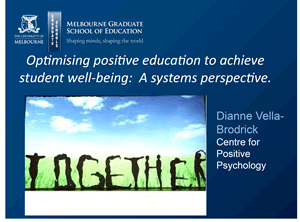 The contribution made by parents and grandparents to a child or teen’s success in school and in life is enormous. When teachers and families work together the results that kids achieve are amazing. Here are some of the main things we can all do to give children and teenagers a boost in school success.
The contribution made by parents and grandparents to a child or teen’s success in school and in life is enormous. When teachers and families work together the results that kids achieve are amazing. Here are some of the main things we can all do to give children and teenagers a boost in school success.
1. Be positive about learning ourselves By taking on hobbies, new courses and discussing new inventions and ideas we show our children and grandchildren that learning is interesting and it is for everyone. This can be as easy as discussing new idea and shows, interesting facts and discoveries, reading new books- the key idea is for young people to know that learning is something adults do too.
2. Have a creativity corner Find somewhere in your home for projects, art works and collections. Setting this up doesn’t need to be expensive. Creative geniuses need somewhere they have to invent, work on and keep ongoing projects. One of the great ways to learn about persistence is by starting a project and then building upon it and improving it over time. Warning- cover the carpet under this corner and at times you may need to cover it all with a drop sheet. Expect this area to get messy and wild. Becoming a genius is not always neat.
3. Experience + reflection = learning The experiences we have in our lives build our brains. When parents and grandparents involve children in experiences they grow their brains. By giving our children new and interesting positive experiences, we stimulate their brain development and make them smarter. By asking them to think about the things they have seen or felt they consolidate this new experience into their brains. To really have the natural genius of kids surge don’t keep doing the same things over and over again. Find ways to do new things, visit new places and try out different ways of seeing the world.
4. Look for strange and weird ways to connect things Imagination and creativity is often about thinking ideas that no one else really thinks. You can help stimulate this by playing a game of thinking up ways that different things are alike. For example how are the plant Mars and an apple alike? Do worry if you don’t have an answer. Genius is more about asking questions than having answers.
5. Know that mistakes are opportunities If you can’t make a mistake you‘ll never do anything new. If children can’t bear to make a mistake they can’t access their inner creative genius. Help them to realise that we all make mistakes. No one gets everything right the first time they try. In fact making mistakes is the way we learn.
6. Stretch ideas The world seems to encourage people to seek answers (usually from google) and then stop thinking. Be the antidote to this by helping your child or teen to take ideas and stretch them out. This requires parents and grandparents to have a good sense of humour and an enjoyment of the absurd. Ask kids to take ideas and apply them in as many strange ways as they can. Geniuses take information from multiple sources, recombine them in new and interesting ways and apply them in settings not many people thought of before them. Copyright Andrew Fuller www.andrewfuller.com.au 2
7. Develop concentration It is hard to imagine attaining success in an area of life if you cannot learn to concentrate. Anyone who has ever learned to ride a bike, play a musical instrument, surf a wave or drive a car knows that concentration is a skill we can get better at. Often kids are drawn to different things to concentrate on. Notice what draws their attention and build upon that.
8. Help them learn to plan and make decisions Being able to anticipate what is likely to happen as a result of your actions is an essential life skill. The ability to look beyond your current circumstances and consider the outcomes of possible courses of action is something we can help children and teens to learn. This can be as simple as mapping out different pathways or asking kids, what do you think will happen if we did this or what do you think would happen if we did that? Our actions have consequences. Decision making is a rare skill. Some people just allow life to happen to them and then express dissatisfaction about where they end. Help kids to become active decision makers if you want them to have a happy life. Much of our life’s happiness – where we live, where we work, who our friends are and who we are in a relationship with – is determined by the decisions we make. Decisions are like crossroads that we meet in life. Helping kids to stop, pause and weigh up the likely results of taking different actions or pathways is one of the most powerful things a parent can do to help create a happy life for their child.
9. Don’t just read to kids, read with them Reading with kids helps them to gain an interest in new information. By pairing time with parents and grandparents as learning time helps them to see the value in new learning. Even when children are older capable readers, occasionally sharing a story, reading out something interesting from the newspaper or reciting a poem, saying or song will show them learning is something older people do as well. Genius is about being more interested in the things we don’t know than the things we do know. It is very difficult to become intrigued in the things we don’t know if we don’t occasionally see the world from someone else’s perspective. Films and computer games will do this to some extent but nothing beats a good book. Even for really reluctant readers, it only takes one great book being read to them and with them to make a world of difference.
10. Let them know how incredible they are These days, we talk of some people being a genius but have forgotten that everyone has a genius. Within each person is an inner genius, an inner passion, ability and desire that we can unlock and draw out. As parents and grandparents it is much more important to focus on drawing out potential and focusing less on current performance. One of the things very successful people say is that they had someone who believed inn them as a child. When asked how they managed to achieve a remarkable accomplishment they often pause and reflect that no one ever told them they couldn’t do it. Andrew’s latest book Unlocking Your Child’s Genius (Finch Publishing) will be published in July 2015.


